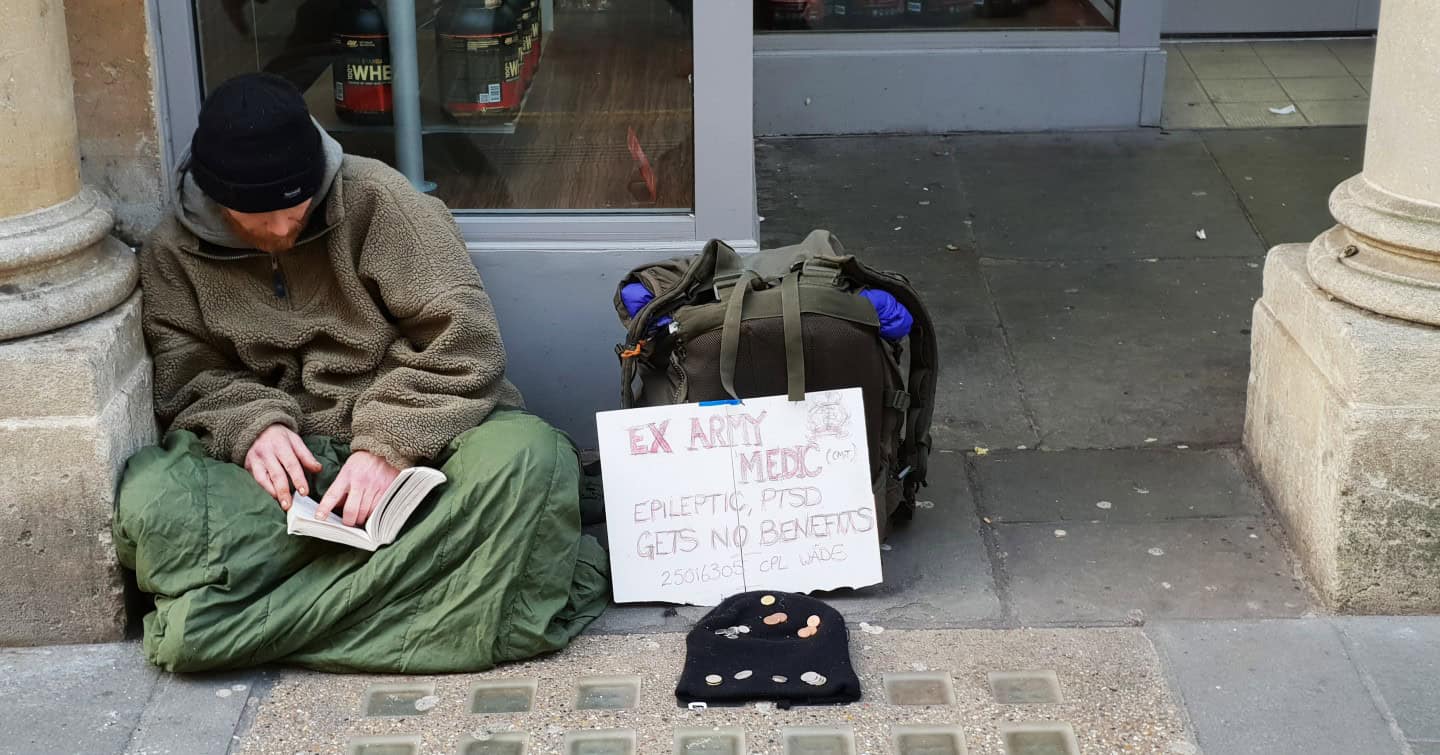
Homelessness should not be an option for those that have served our country
With an increasing number of former service personnel becoming homeless, the questions we should be asking ourselves are why is this happening and what can we do to put a stop to it?
Why are veterans at risk of homelessness?
For service leavers the transition into civilian life can be difficult, particularly if they have had their career cut short by medical discharge. It can be even harder for those that suffer from mental illness. The MOD report that in 2017/2018, mental health and behavioural disorders accounted for 18% of all medical discharges, 6% of which were due to PTSD.
Homelessness and mental health are very closely linked issues and dealing with a mental health problem such as PTSD, can make it much harder to deal with financial and housing problems. Mental health problems can also lead to addiction and unemployment, increasing the risk that a veteran will end up on the streets. Those that are leaving the service may also be dealing with finding their own home for the very first time, having been previously supported in earlier moves by their employer.
There are at least 320,000 people that are homeless in the UK and up to 80% of those may have a mental health condition. Not only are you more likely to become homeless if you have a mental health condition but being homeless is likely to make your mental health much worse.
Whilst military experience and the resilient nature of those that have served may unfortunately make veterans better equipped to live on the streets, it absolutely should not be an option for those that have served our country.
What are the statistics around veterans being homeless?
It is not known exactly how many homeless veterans are sleeping rough but it is estimated that there are around 6,000 in the UK and this accounts for up to 4% of the homeless population. The Government has acknowledged that there are limited statistics on homeless veterans and they have said they are working on putting together more comprehensive data. This is essential to tackling the issue: how can the Government begin to address this without knowing the true extent of the problem?
What is being done to improve the situation?
In March 2019 the Communities Secretary announced that there would be a £1million fund to boost support for vulnerable veterans who have become homeless or at risk of it. The money could also be used to train staff on mental health issues, including PTSD, so that they can support those that may be initially reluctant to receive help.
The Government also released their Veterans Strategy in November 2018 and said that there is a public perception that there is a significant problem with veteran homelessness and they are committed to tackling rough sleeping and homelessness. There are many charities that aim to support homeless veterans but more needs to be done to protect our former soldiers from falling into homelessness. Collecting reliable information on the issue and looking at what can be done to prevent it from happening in the first place, such as more support on leaving the Military and identifying those at higher risk of falling foul of mental health problems or homelessness, could be a good starting point for the Government.
Charlotte Jose is a paralegal in Bolt Burdon Kemp’s Military Claims Team. If you would like to make a claim, contact Charlotte free of charge and in confidence on 020 7288 4853 or at charlottejose@boltburdonkemp.co.uk. Alternatively, complete this form and one of the solicitors in the Military team will contact you. Find out more about the Military Claims team.










